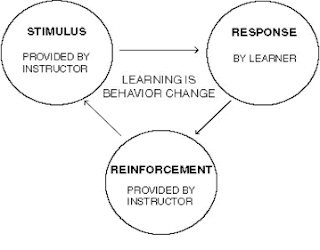Curriculum Definition
The planned and guided learning experiences and intended learning outcomes formulated through the systematic reconstruction of knowledge and experiences under the auspices of the school for the learners' continuous and willful growth in personal social competence. ( Daniel Tanner, 1980)
There are 5 basic definition of curriculum :
1. A plan for achieving goals
-Involves sequence and steps.
-Providing sets of opportunities to educate people.
2. Dealing with the learners' experiences
-Children's ongoing experiences under teachers' guidance
3. A system for dealing with people
-Linear/non linear system
-Linear : plots out the means to a desired end
-Non linear : specialist can enter at any point of learning
4.A field of study with it own foundations, knowledge domains, research, theory, principles, and specialists.
-Discuss curriculum in theoretical form not practical form
-Concern with broad historical, philosophical or social issues.
5. Subject matter. ( math, science, English, history, etc.
-Emphasize in concepts, facts of particular subject areas.
Importance of curriculum
- Achievement of educational aims
- Criteria of suitable teachers
- Selection of suitable methods
- Reflects trends in education
- Providing wholesome influences
- Provide suitable knowledge
Types of curriculum
1. Recommended
-proposed by scholars and professional organizations
2. Written
-appears in school, district, division or country documents
3. Taught
-what teachers implement or deliver in the classrooms and schools
4. Supported
-resources : textbooks, computers, AV materials with supports, and help in the implementation of curriculum
5. Null
-messages that are silenced, or just simply not included
-subject matters that is not taught at all although they appear to be important
6. Hidden
-implicit, invisible and unwritten messages
7. Learned
-what the students actually learn and what is measured

















